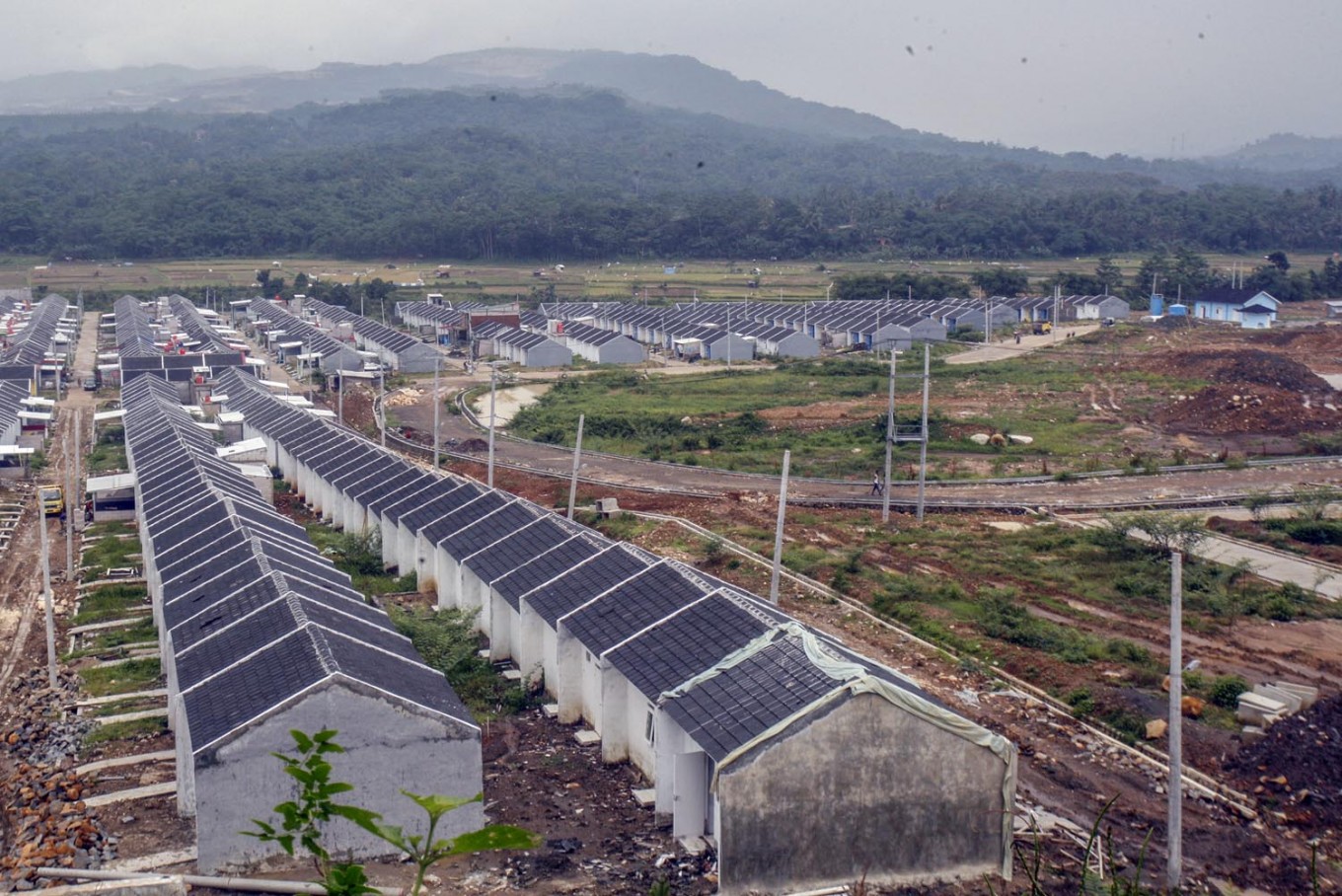Popular Reads
Top Results
Can't find what you're looking for?
View all search resultsPopular Reads
Top Results
Can't find what you're looking for?
View all search resultsIndonesia's housing sector constrained by rising interest rates, sluggish buying power
Rising benchmark interest significantly impacts the landed house sector, considering 90 percent of its buyers were end-users -- or home-buyers -- who used property loans or housing loans (KPR).
Change text size
Gift Premium Articles
to Anyone
The rising benchmark interest rate added pressure on the landed housing sector, property consultancy firm Colliers has said.
Colliers head of research department Ferry Salanto explained that the increasing benchmark interest rate would significantly impact the landed house sector considering 90 percent of its buyers were end-users -- or home-buyers -- who use the property loans or housing loans (KPR).
Meanwhile, the apartment sector would not be affected as much, as most apartments were bought by investor-buyers who mostly paid in cash installments instead of apartment ownership loans (KPA), Colliers estimated.
“This is a cause of concern because so far, the landed house sector is a significant contributor to the overall property sales,” he said in a press briefing on Wednesday.
“The market encompasses many people nationwide. [Stakeholders] need to work on boosting [the people’s] buying power.”
Total disbursement credit for KPR reached Rp 557.49 trillion (US$36.71 billion) in July, Bank Indonesia (BI) data showed, significantly larger than the total disbursement credit for KPA, recorded at Rp 27.06 trillion for the same month.
Read also: Affordable housing pushed further out of city centers
The central bank raised all its key interest rates for the first time since 2018 to anticipate rising core prices, warning that headline inflation could exceed 5 percent this year.
The BI board of governors raised its benchmark seven-day reverse repo rate (7DRRR) by 25 basis points (bps) to 3.75 percent on Tuesday, followed by a 0.25 bps increase to the lending and deposit facility rates to 4.50 and 3.00 percent, respectively.
Read also: BI hikes rate for first time since 2018, warns inflation could exceed 5%
Steve Atherton, head of capital markets and investment services, said that investors are interested in landed housing, data centers and logistics -- and to a certain extent, retail and hotels.
However, as the world grappled with uncertainty and central banks struggled to fight inflation by increasing interest rates, investors are reexamining their investment strategy in Indonesia.
“We are seeing [...] a conservative approach to investment,” Atherton said in the press briefing.











